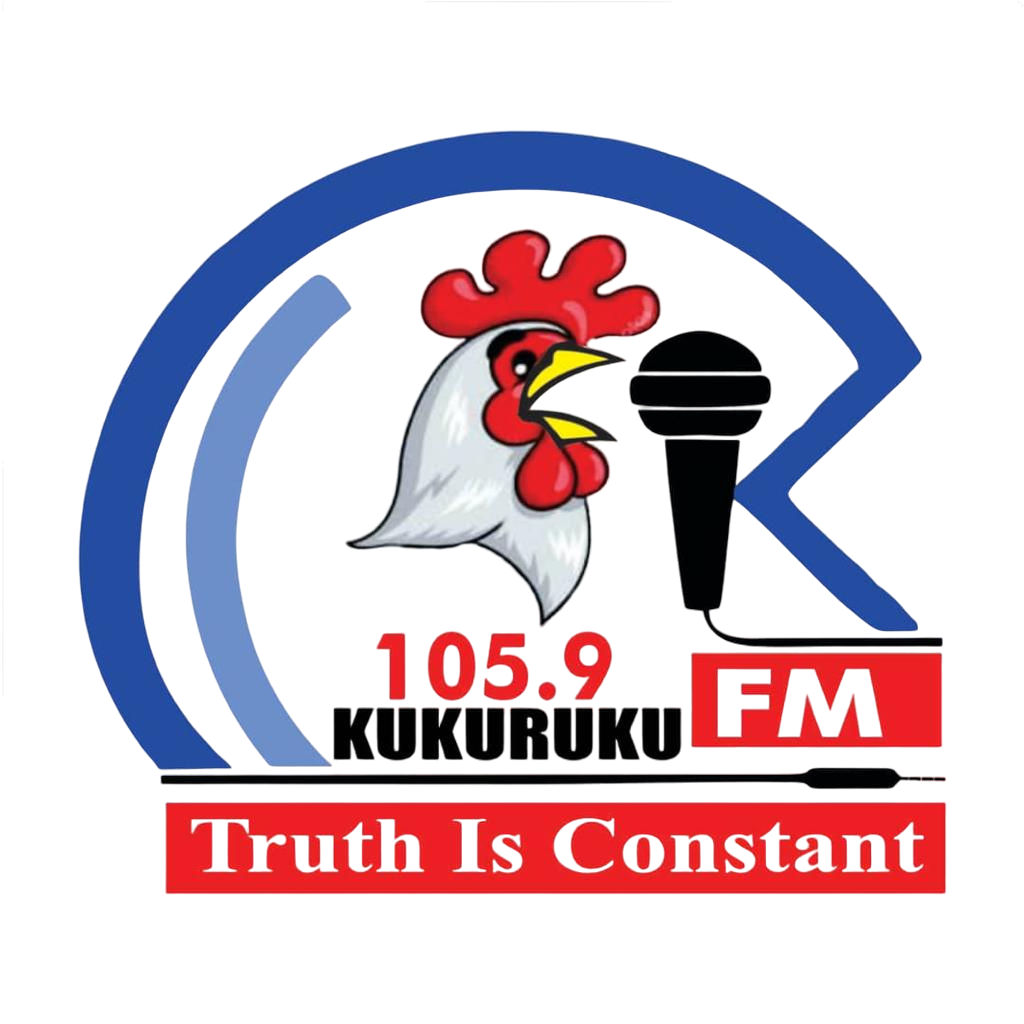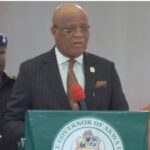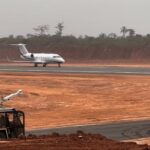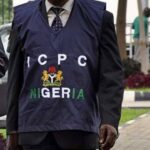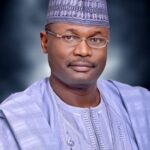•Rises by 26% to $2.3bn in 9mths
•Increase driven by panic, front-loading of fx demand — Bank Executive
•Indictment on Nigerian varsity system— ASUU, CONUA
•Investigate sources of funding – NAPTAN
•Local healthcare system needs urgent reforms —Medical professionals
Despite the over 30 per cent depreciation of the naira, Nigerians increased spending on foreign education and health services by 26 per cent, to $2.3 billion in the first nine months of 2024.
This upsurge in spending, according to stakeholders in the education and health sectors, is an indictment on the country’s university system and a reflection of critical gaps in the local health care system.

Financial Vanguard analysis of data from the Central Bank of Nigeria, CBN, Statistical Bulletin revealed that spending on foreign education rose by 26.5 per cent, YoY, to $1.8 billion in first nine months of 2024, 9M’24, from $1.44 billion in same period of 2023, 9M’23.
Similarly, spending on foreign health services rose by 24.8 per cent, YoY, to $465.67 million in 9M’24 from $366.05 million in 9M’23.
Consequently, spending on both services rose by 26.6 per cent to $2.387 billion in 9M’24 from $1.81 billion in 9M’23.
This represents continuation of the upward trend in spending on foreign education and health services, which commenced in 2023, after a three year decline from 2020 to 2022.
According to CBN data, spending on both services in 9M’23 rose by 2.6 per cent to $1.81 billion from $1.76 billion in 9M’22.
The above development is however contrary to expectation that the 233 per cent depreciation of the naira between 2023 and 2024 will lead to a decline in demand for forex.
Panic and front-loading of FX demand.
Speaking to Financial Vanguard on factors behind this anomaly, Nnamdi Nwizu, Co-Managing Partner, Comercio Partners, a Lagos based investment banking firm, said:
Naturally we would expect a drop in FX demand with the massive depreciation of the naira, however let us not forget the fact that people panic when the currency starts to lose value.
What we saw would likely be a lot of front loading of demand by users, as the currency depreciation became obvious. Now that we have seen some stability in the currency, it is likely we see that front loading taper off and the result should be a gradual drop in demand.
Indictment on Nigerian varsity system
Meanwhile, stakeholders in the educational sector, namely the Academic Staff Union of Universities, Congress of University Academics, CONUA, and the National Parent Teacher Association of Nigeria, NAPTAN, have described the over $1.82 billion spent by Nigerians to pay tuition fees in foreign universities as a national embarrassment and an indictment of the university education system in the country.
They also called for an investigation into the sources of the income of those who paid such money.
They spoke through their National Presidents in reaction to the data from CBN of the humongous amount spent on foreign tuition fees in the period under review.
National President of ASUU, Prof. Emmanuel Osodeke, said: It is a very unfortunate situation. More people are now sending their children abroad.
Just last year, I learned that Nigerians spent about 600 million pounds on tuition fees in Britain.
We are busy funding other universities while ours are dying. Don’t be surprised that the money being spent is not from private coffers, but from public sources. Most of the people involved are public officers.
A senator earns over N30 million monthly, a Special Adviser earns over N3 million monthly and a professor earns about N400,000 monthly.
We are yet to get our priorities right. Nigerians must insist that the children of their leaders must attend schools here, then we may see some positive differences.
If Nigerians care to observe, our universities are gradually going the way of our public primary and secondary schools, abandoned and derelict.
In 2023, the government said N300 billion was budgeted to revitalize our public universities, but not a single kobo was released.
We pursued the release of the money in 2024, but it was not released and what we heard at the end of the day is that the money has been mopped up.”
On his part, National President of CONUA, Dr Niyi Sunmonu, Stated: “It is a sad commentary and an indication of total indictment of our university education system.
If the foreign exchange was floated leading to a high devaluation of the naira and we see this much being spent on foreign education, it is a lack of confidence in our system.
Let the government stem the tide, the kind of money being spent on foreign education is too huge. If half of that is spent on the schools here, things would be better.
If the trend continues, the university education system would collapse. It is a lack of trust in the system.
When every parent is now desperate to get their wards and children out of Nigeria, who would then build this place for us?
Investigate sources of funding
National President of NAPTAN, Haruna Danjuma, was of the view that such parents must be investigated.
It is a minus to us and the education system to have had Nigerian parents spending so much on tuition fees for their children studying abroad. Are we doing justice to our country and fair to the system?
It is an indictment. It is good for the government to think of the way out of the menace. Government should find means to upgrade facilities in our institutions. Nigerian leaders should also let their children attend schools here.
People should only go abroad for courses that are not available here or else Nigerians would go abroad to study Hausa, Igbo and Yoruba languages.
Those spending such huge sums on foreign education should be investigated. Their sources of income should be known.
Why Nigerians go for foreign medical services
Speaking on why Nigerians go for foreign medical services, Dr. Akinola Akinmade, Deputy Medical Director, Afe Babalola University Multi-System Hospital (ABUAD-MSH), Ado Ekiti, Ekiti State, said:
Regarding increased foreign medical spending, the surge reflects critical gaps in the local healthcare system.
These gaps include limited access to specialised care, outdated infrastructure, and a growing lack of trust in domestic healthcare delivery.
The major medical conditions fueling medical tourism are cardiac surgery, cancer therapy, and kidney transplant surgeries.
Despite huge strides in these same areas by institutions like ABUAD-MSH that have performed several open heart surgeries and kidney transplant procedures with enviable success rates, many Nigerians still seek treatment abroad, underscoring the lack of trust and at times information among our people.
Similarly speaking, Professor Oladapo Ashiru, President of the Academy of Medical Sciences and Chairman/Chief Medical Director, Medical ART Centre, Lagos, said:
The primary concern is the accuracy of the data. A crucial aspect is that the situation could even be worse than indicated.
In my area of expertise, the current patients seeking foreign medical services mainly include those diagnosed with cancer, individuals requiring oncology treatments like proton radiotherapy, patients with heart issues, and people needing procedures such as knee replacements or renal transplants.”
Also explaining factors driving demand for foreign medical services, and why the trend may increase, Dr Paul Faduola, Chief Scientific Director/Founder, Androcare Fertility Centre, Lagos, said:
The figures could get even higher. I do not see those figures coming down any time soon, rather I see them going up. As more Nigerians become aware of their conditions or their diagnosis early, they will keep going abroad for treatment.
If you look at it very well, Nigerians are not going abroad for things like malaria and typhoid treatment, they are traveling for organ transplants, neurosurgery, cardiovascular issues, and the like.
These are specialty-driven areas and most Nigerians travel abroad for these services because they are not done properly in Nigeria. So the number of Nigerians seeking medical treatment abroad is likely to increase.
Need for urgent reforms in healthcare
To Address the upward trend in demand for foreign medical services, Dr. Akinmade, said: There is an urgent need for systemic reforms to improve the quality and accessibility of healthcare in the country.
Investments in advanced medical technologies, capacity building for local specialists, as in the case of ABUAD-MSH, and public-private partnerships are essential to reduce medical tourism and retain patients within the country.
